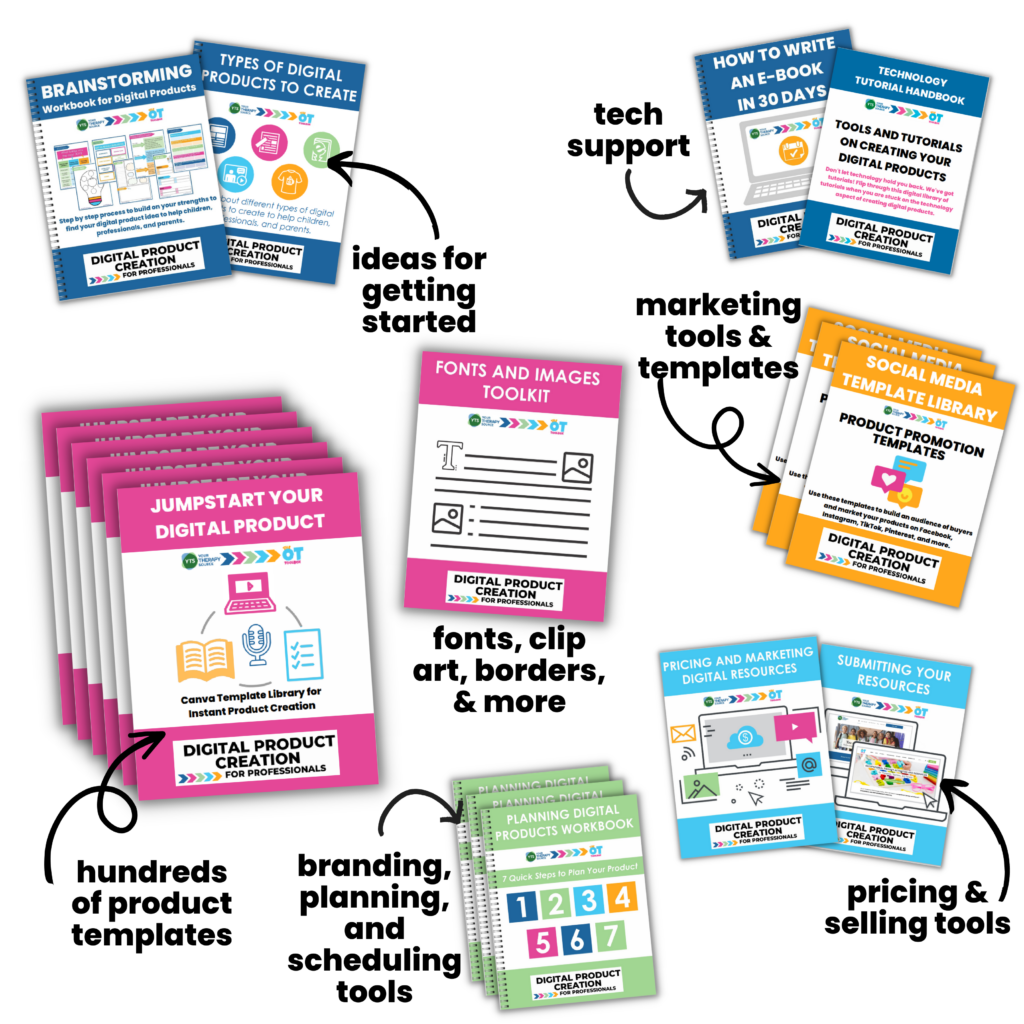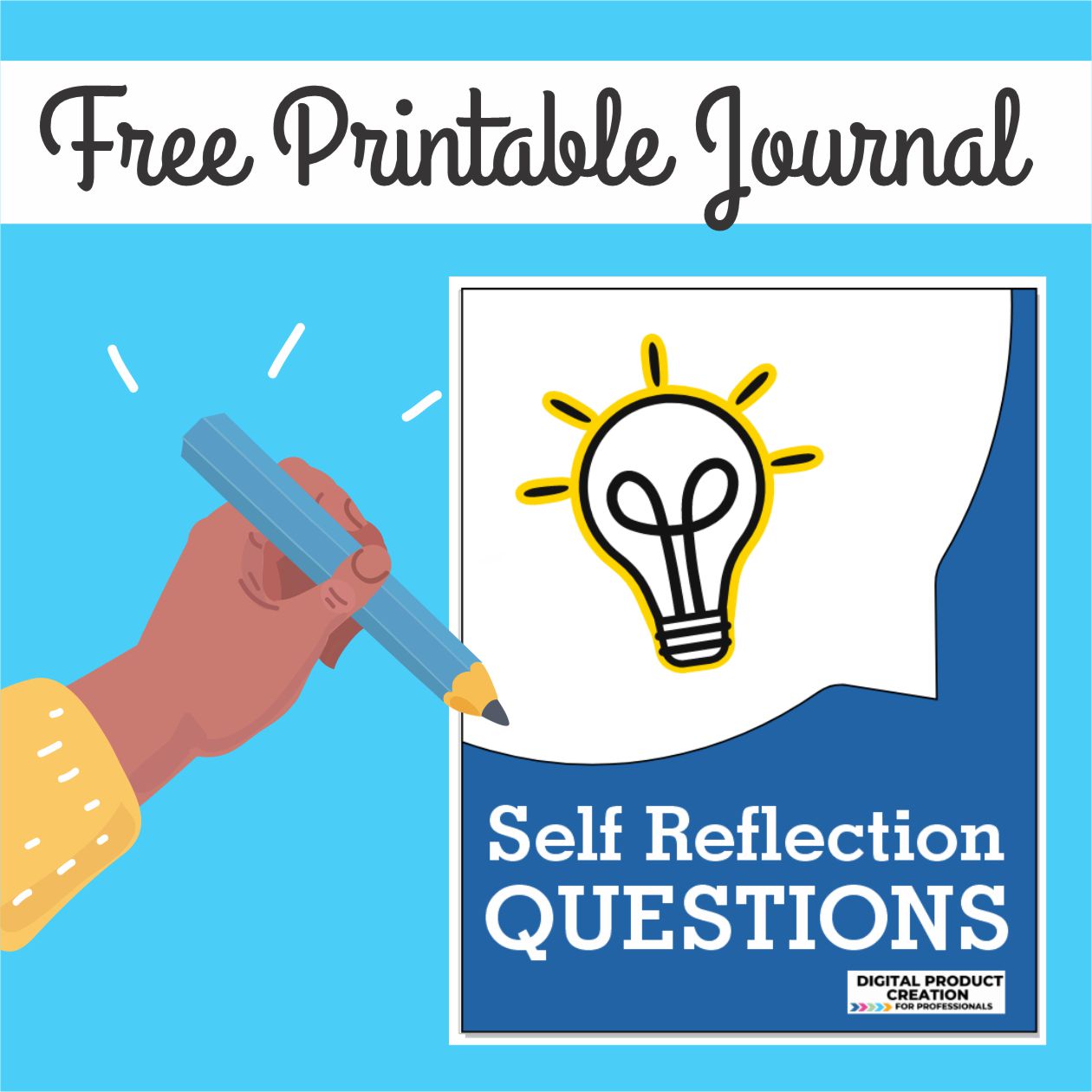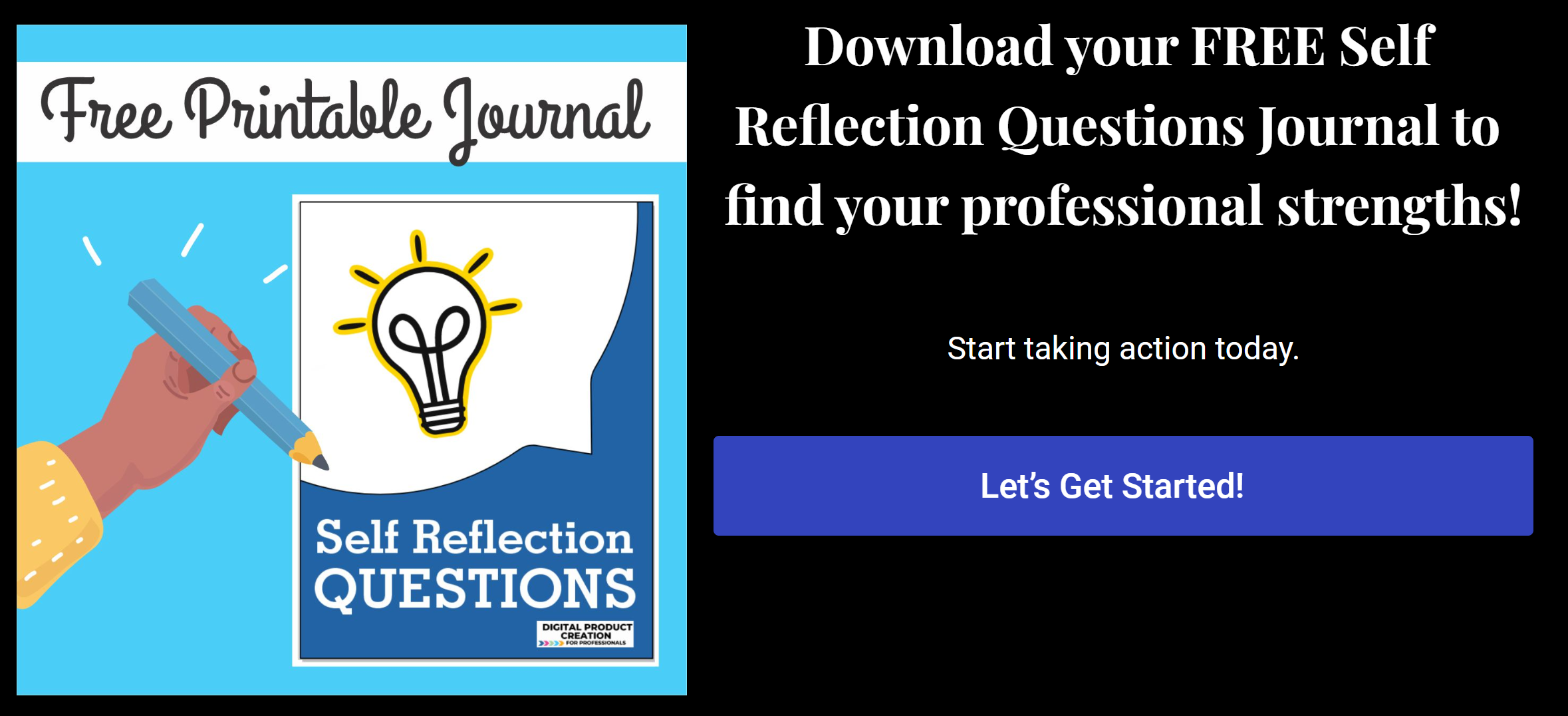Are you looking for a way to use your professional knowledge and experience to earn passive income? Creating digital products like courses, ebooks, or worksheets can be a great way to do just that. But where do you start? Read all about self reflection. Answer 10 self reflection questions to help guide you on your passive income journey of selling what you know.
Not interested in creating digital products? Self reflection questions are excellent for personal growth and to gain a deeper understanding of yourself regardless. Give it a try!
You can download a FREE copy of the Self Reflection Questions Journal at the bottom of this post.
WHAT IS THE PURPOSE OF SELF REFLECTION QUESTIONS?
Self reflection questions can be powerful tools to help us gain insight into ourselves and our lives. Through self reflection, we can contemplate the motives and thoughts behind our interactions to help us live a more fulfilling life.
Self-reflection questions also allow us to brainstorm solutions to any challenges we are facing. By challenging ourselves to think self-critically, we become accustomed to self-assessment. This creates a sense of self understanding that encourages progress in personal growth as well as in individual relationships. This process can help us:
- build self-awareness
- improve our mental health
- provide a healthy perspective on challenging situations
- help us make more informed decisions about our lives.
Adding self reflection questions to your daily routine can be an excellent addition to your self care regimen. It can also boost your self confidence.
Teachers often ask their students to self reflect on new information or how they did on a test. It helps students to take ownership of their progress. We can do the same in any professional field.
HOW DO I START SELF REFLECTING?
Self reflection is an essential activity for self-improvement. It allows us to learn more about authentic self and our relationships with others. It is a self discovery journey. To begin self reflecting, it is important to develop a special time and place to focus on self reflection. This can be early in the morning or just before bed.
Create good habits during self reflection times, by setting intentional goals to focus on and reflect upon during that time. If you are career oriented, you can start by using the 10 questions below to deepen your understanding of your strengths and weaknesses in your work environment.
Those entries can also trigger ideas and insights when focused on from multiple angles. Remember — self reflection isn’t just about self evaluation but understanding why we think, act, and feel the way we do. It helps use put a new perspective on our daily lives. Take this moment to reflect on the past so we can live our best life.
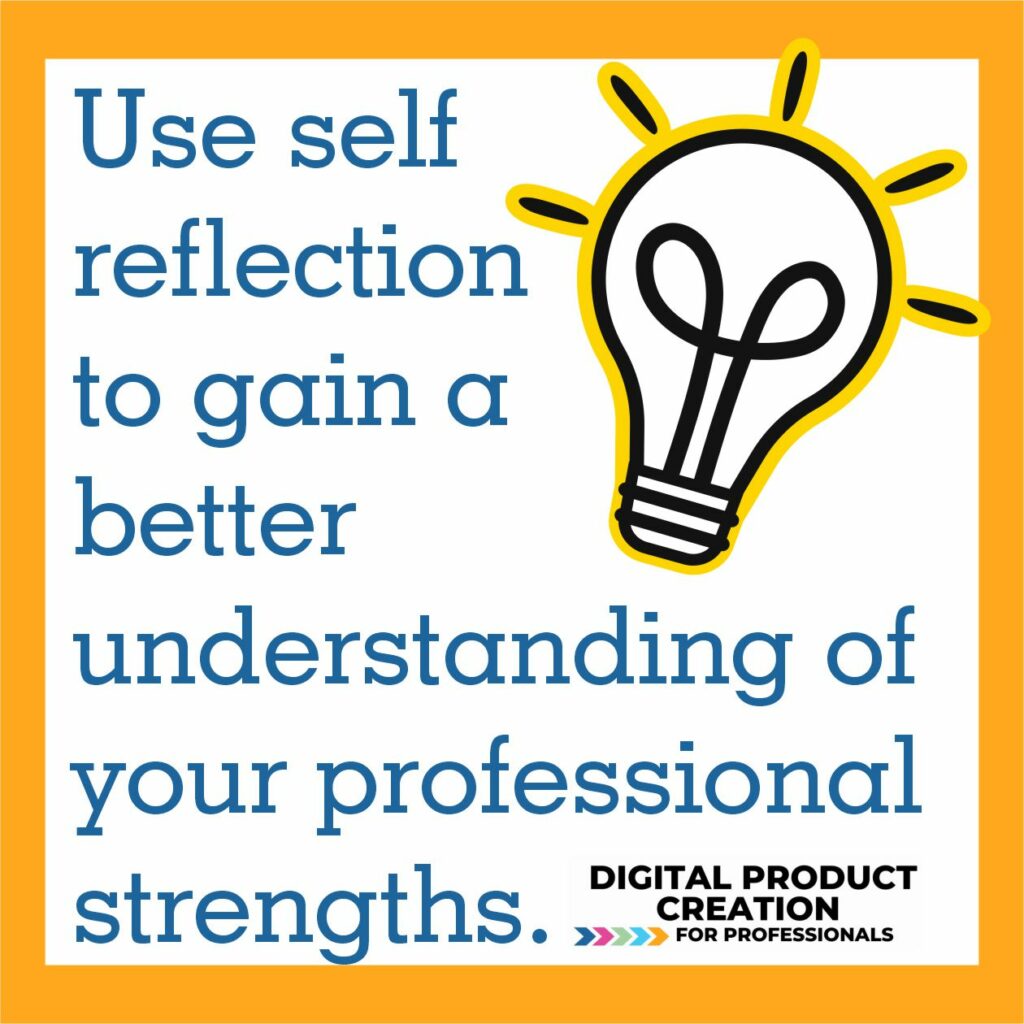
10 SELF REFLECTION QUESTIONS TO ASK
Reflecting on your own strengths and experiences in your field or industry, helps you to identify what topics or skills people often ask you for advice on, what unique perspectives or experiences you bring to your work, and what tasks or projects come naturally to you. You can create a self reflection journal and write your answers down or you can quietly self reflect on your answers in your head.
These self reflection questions cover topics for your work life balance and thinking outside of the box when it comes to your professional experiences. It can help guide you on your career path to securing your dream job and earning more money.
What topics or skills do people often ask you for advice on?
This question is all about understanding what people in your professional network value most about your expertise. By identifying the topics or skills that others seek your guidance on, you can determine where your strengths lie and begin to explore how you might turn this knowledge into a digital product.
What unique perspectives or experiences do you bring to your work that others may not have?
Every professional has a unique set of experiences and viewpoints that they bring to their work. Identifying these differences can help you stand out from the crowd and create digital products that offer something truly distinctive.
What tasks or projects at work come naturally to you and allow you to fully utilize your strengths?
By reflecting on the tasks or projects that come most easily to you, you can gain insight into where your natural strengths lie. This knowledge can help guide the creation of digital products that play to those strengths.
In what areas have you received positive feedback from colleagues, managers, or clients in the past?
Positive feedback is a great indicator of where your skills are most impactful. By examining areas where others have praised your work, you can identify opportunities for creating digital products that build upon those successes.
More Self Reflection Questions:
What are some common challenges that people face in your industry or field? How can your strengths help them overcome these challenges?
Understanding the pain points and challenges facing others in your industry is key to creating valuable digital products. By considering how your own strengths and expertise relate to these issues, you can develop resources that provide real solutions for those struggling with similar problems.
Which types of content (e.g., lesson plans, worksheets, printables, videos, written guides, interactive exercises) do you enjoy creating the most?
The type of content you enjoy creating will likely be both easier for you to produce and more engaging for potential customers. Reflecting on which format comes most naturally to you can help guide the development of effective digital products.
Have you ever created any educational materials such as presentations, workshops, worksheets, handouts, etc. for coworkers or clients? If so, what was the response like?
If you’ve created educational materials before, reflecting on their impact can provide valuable insights into what works best for learners in your field. You may be able to draw upon successful past efforts as inspiration for new digital products.
Which topics related to your profession could benefit from more accessible and affordable educational resources?
Identifying gaps in existing educational offerings within your field presents an opportunity for developing new digital products that fill those voids while providing value to potential customers.
Are there any skills or knowledge gaps within your own organization that could be addressed through a digital resource?
Sometimes the best ideas come from identifying needs close at hand – namely within one’s own organization! Examining skill gaps within a company provides insight into topics where expertise already exists internally but may not yet have been shared broadly enough.
How can you leverage your professional strengths to help others achieve their goals and advance their careers?
Ultimately, creating successful digital products requires leveraging one’s own experience and expertise toward helping others achieve success in their own careers and pursuits – while also generating passive income along the way! Answering this final question helps identify ways in which professionals’ unique talents might intersect with market demand.
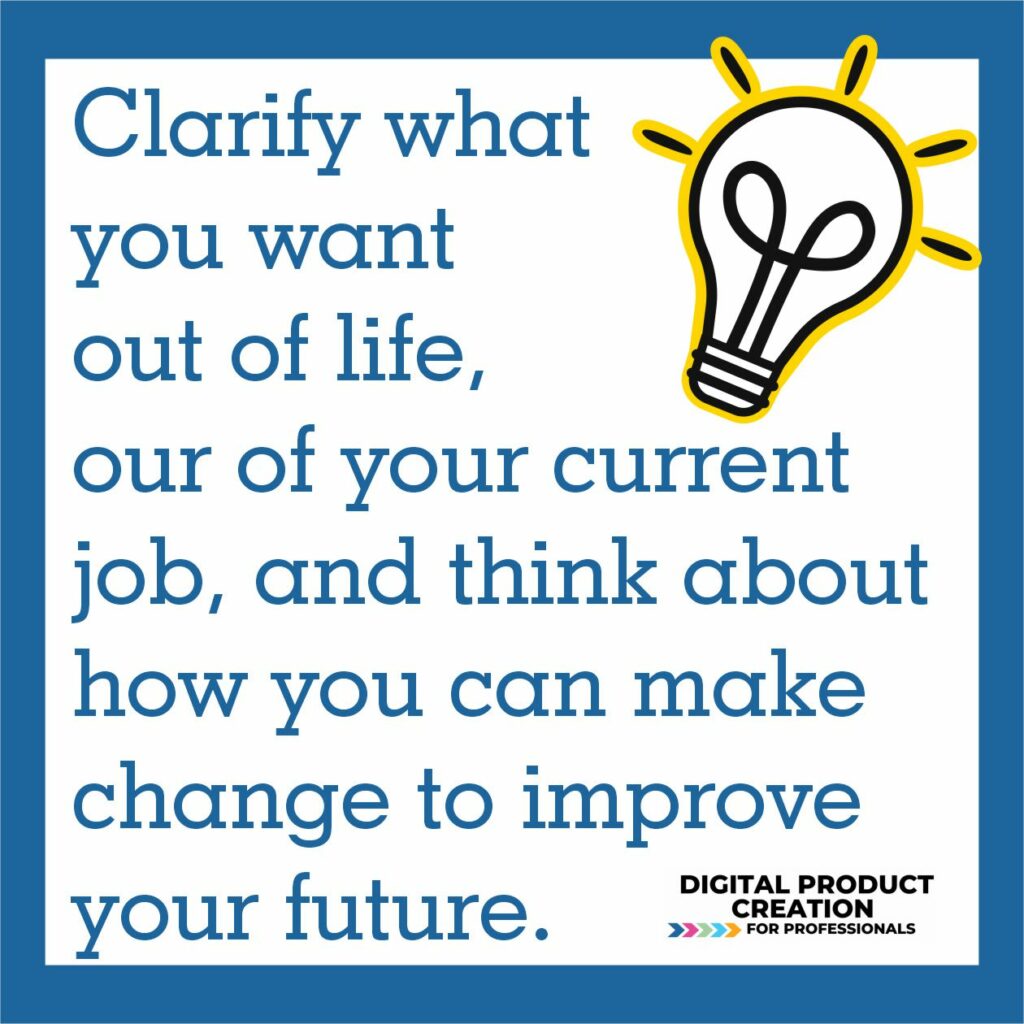
5 Ways to Practice Self Reflection
Keep a journal.
One of the best ways to practice self-reflection is to keep a journal. Writing down your thoughts and feelings on a regular basis can help you to better understand your emotions and behaviors. Additionally, journaling can be a helpful way to work through difficult life events or challenges. You can use the questions above as journal prompts.
Set aside time each day for reflection.
It can be helpful to set aside some time each day, even if it’s just 5-10 minutes, to sit quietly and reflect on your day. During this time, you can think about what went well and what could have gone better. This can be an opportunity to identify any patterns in your behavior that you may want to change.
Clarify what you want out of life, our of your current job, and think about how you can make change to improve your future.
Practice mindfulness.
Mindfulness is the practice of being present in the moment and paying attention to your thoughts, feelings, and sensations without judgment. Mindfulness can help you to become more aware of your thought patterns and how they impact your mood and behavior. Mindfulness has been shown to reduce stress and improve overall well-being.
Identify your values, core beliefs, and goals.
Spending some time identifying your personal values and goals can be extremely helpful in the self-reflection process. Once you know what is important to you, it will be easier to make choices that align with your values. This is an act of self love.
Similarly, setting goals can help you to focus on what you want to achieve in life and make progress towards those goals.
Reflect on your Interactions During the Day.
Your interactions with others and your relationships are an important part of your life and deserve attention during the self-reflection process. Take some time to think about the people in your life and how they make you feel.
By adding self reflection to your self care routine, you can consider how you interact with others and whether there are any changes you would like to make in your relationships.
Self Reflection Questions Can Help Guide You
By answering these questions honestly and thoughtfully, you can gain a better understanding of how your expertise can help others in need of guidance in certain areas of their professional lives. If you need additional insight, answer even more questions.
Creating digital products based on these areas of strength not only allows professionals like yourself an opportunity to share valuable insights with others but also provides an avenue for earning passive income by selling these resources online.
So why not take some time today to reflect on these questions and see how they can guide you towards creating meaningful digital products that will benefit both yourself and others in the long run?
SIGN UP TO RECEIVE YOUR FREE SELF REFLECTION QUESTIONS JOURNAL
Subscribe to the Digital Product Professionals email newsletter and get access to this awesome printable journal.
